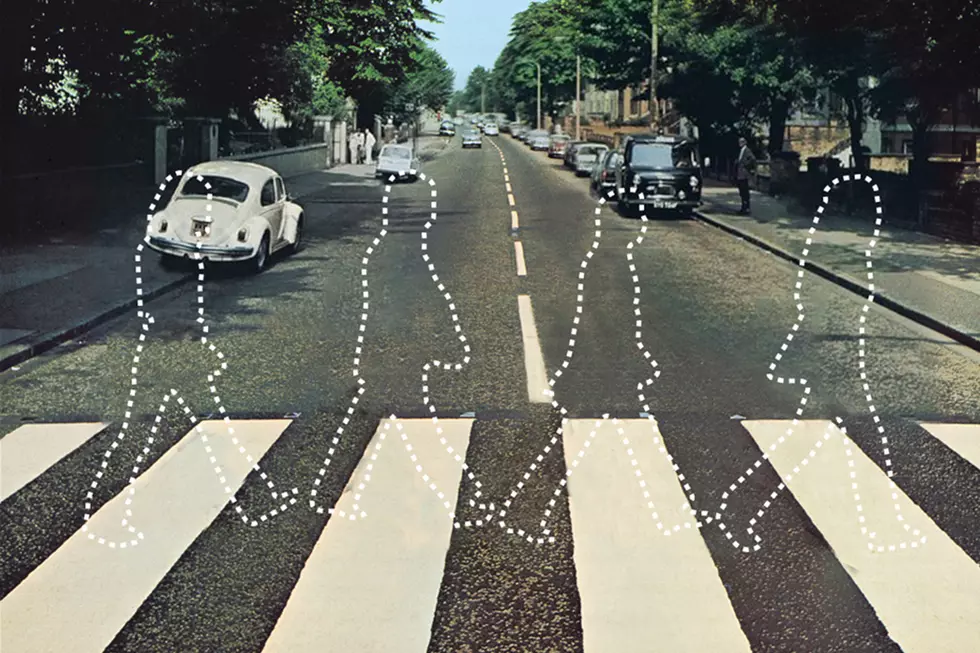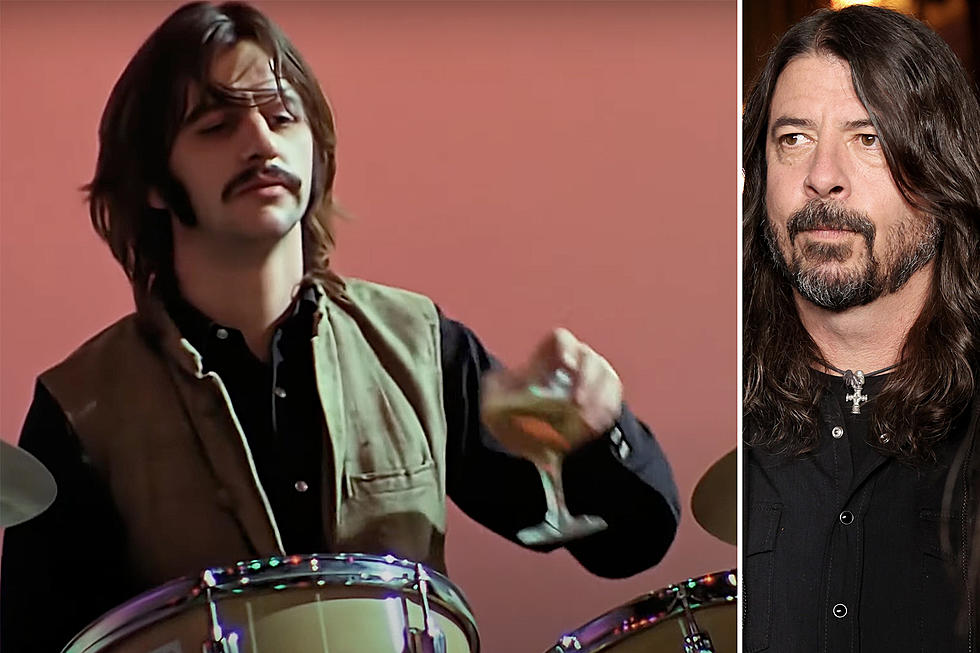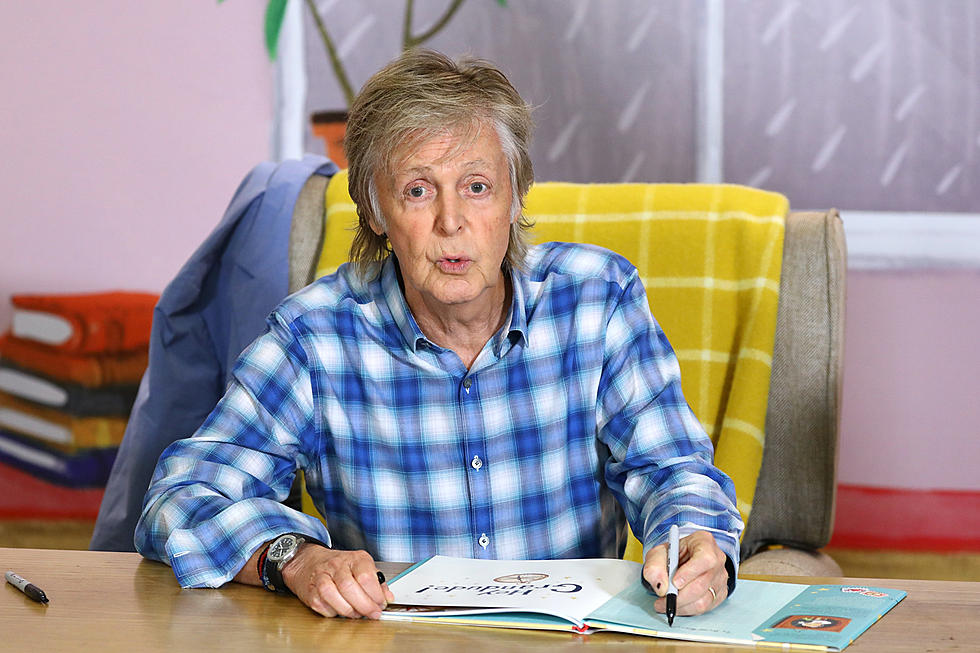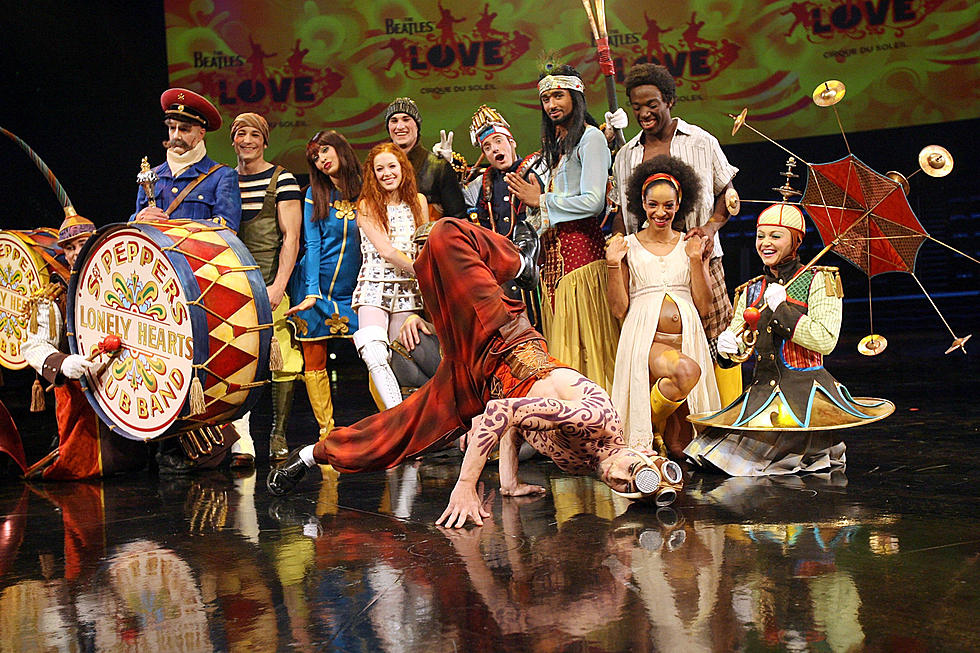
What If the Beatles Never Existed?: A ‘Yesterday’ Roundtable
The new Danny Boyle movie Yesterday creates a scenario where only one person is able to remember that the Beatles ever existed. We asked some of our writers four questions related to a world without the Beatles' impact on music and society. You can read their responses below.
1) Is there a band or artist whose disappearance would have a greater impact on the history of rock music than the Beatles? If so, who and why? If not, why and who’s in second place?
Dave Lifton: My original instincts were to say Elvis Presley or Bob Dylan, but the more I thought about it, I kept going all the way back to Louis Armstrong. Without him, you don't have that through-line to rock's African-American roots, either in jump blues (Chuck Berry was influenced heavily by Cab Calloway and Louis Jordan, who built upon what Armstrong did) or R&B (could Chicago's scene, so important to the development of British rock, have thrived if he hadn't moved there in the '20s to join King Oliver's band?). More importantly, the loss of Armstrong means we don't have a world where whites are exposed to black music.
Rob Smith: Had Bob Dylan never been born, rock 'n' roll would be missing the poetry, the playful abstract lyrical elements, even the sense of humor that he brought to bear. His short- and long-term impact on music and pop culture is as important as the Beatles’: Both were looked upon with a kind of wonderment back then; both are still felt today. It’s difficult to think of someone who might have filled that vacancy in his absence.
Martin Kielty: In terms of the move toward the Beatles having been established, it would be Lonnie Donegan. A jazz musician by trade, he took advantage of studio downtime to record American folk songs and accidentally invented skiffle music. It was easy to play, no expensive instruments were needed, and it was catchy – and John Lennon was one of many thousands of young hopefuls who started playing music because of Donegan. Further back, it would have to be one of the early African-American blues artists, although I suspect that while I’d name Robert Johnson, the true hero of musical revolution will never be known by name. (Also worthy of note: Donegan and a significant part of what became blues music both came from Scotland, as I explained in my 2006 book Big Noise.)
Nick DeRiso: Among bands, no. But individuals? Yes, certainly. There’s no denying the sweeping musical impact of figures like Louis Armstrong, Muddy Waters, Elvis Presley, Frank Sinatra, Ray Charles and Bob Dylan. Of them, I’d select Elvis Presley, because we’re talking about rock music. No Elvis, no rock music.
2) If the Beatles never existed, would there have been the same-sized ______-mania around another band, such as the Rolling Stones or Beach Boys? Or was that moment only going to happen for them and nobody else?
Lifton: Most likely it would be the Beach Boys. They'd already established themselves by the time the Beatles hit the U.S.: Their fifth Top 20 hit, "Fun, Fun, Fun," came out the week before the Beatles appeared on The Ed Sullivan Show – and had a similar trajectory of artistic development. And like the Beatles, they were good-looking, wore matching outfits and had distinct personalities within the band: the genius (Brian Wilson), the entertainer (Mike Love), the rebel (Dennis Wilson) and the shy one (Carl Wilson).
Smith: There was a peculiar alchemy that made the Beatles – those four individuals, with that sound, at that moment in time. Other bands might have had moments at the top of the charts, might have imprinted their songs on the memories of their fans and other listeners, but there really wasn’t a band that could have had the full-on cultural impact that the Beatles had. It’s hard to imagine a Kinksmania or a Whomania, or what have you, being as important to as many people.
Kielty: None of these things happen by accident. It takes clever people in clever positions. And while it’s fair to say Beatlemania was one of the biggest and best manipulations, it was far easier to pull off in those days. The fact that it was done again later – the Sex Pistols, via Malcolm McLaren, are a good example – and that snake-oil salesmen existed for a long, long time before the Beatles came along, I’m certain someone else would have been at the center of a mania. It’s probably about to happen again soon too.
DeRiso: I don’t see that happening for the specific groups mentioned (Brian Wilson was too gloriously weird, the Stones too edgy and dangerous), but it’s hard to believe some other collection of teen magazine-worthy singers wouldn’t have had a similar experience – if only because it’s continued to happen in the years since Beatlemania.
3) In Yesterday, Oasis don’t exist, because the Beatles didn’t exist. What other bands wouldn’t have existed without the Beatles, or would be dramatically different?
Lifton: In 2014, I wrote a piece called "Did the Beatles Really Save Rock N' Roll," in which I showed that there was plenty of great American pop, soul and folk acts that didn't necessarily need the Beatles. So what it really comes down to is their effect on Britain. Remember that Dick Rowe only signed the Rolling Stones to Decca to make up for rejecting the Beatles. In a world without the Beatles, Rowe's "guitar groups are on their way out" mindset prevails in the U.K., and the entirety of British blues-based rock, starting with the Stones and the Animals and running straight through to Led Zeppelin and heavy metal, looks entirely different. Maybe the Hollies, who, like the Beatles, were from a Northern city and also loved the Everly Brothers and Buddy Holly, could have been the ones to break through, but they took a little longer to find their stride. And even if the Stones managed to get signed, they'd only be doing Chicago blues and soul covers. Andrew Loog Oldham wouldn't have thought to lock Mick Jagger and Keith Richards in the kitchen until they wrote a song.
Smith: How many future musicians watching The Ed Sullivan Show in 1964 would have gone on to be office workers or laborers or bank robbers instead, had the Beatles not performed on the show that fateful evening? Who else would have made a record as expansive as Revolver or Sgt. Pepper's Lonely Hearts Club Band? Would Dylan have gone electric? Maybe Motown would have been even bigger, or maybe not; maybe Andy Williams and Montovani and Ray Conniff would have had a few more years in the sun. Bobby Vinton too. Would there have been a Byrds? There would have been no Pet Sounds, no Monkees, no Badfinger. Probably no Cheap Trick, E.L.O., Big Star, Raspberries, XTC, Crowded House. No Jellyfish, either, or Sloan or Velvet Crush or Teenage Fanclub. Pink Floyd would sound different without the psychedelic influence of the later Fabs. My record collection would be about a third of the size it is now.
Kielty: You name ‘em. The Beatles’ influence stretched miles beyond the songs they wrote. The way they were tracked and the philosophy behind their creative approach was as inspiring to creative minds as just listening and enjoying the music was to emotionally energized fans. As an example, Elton John and Bernie Taupin’s passion for ballads (songs that tell stories, not just slow songs) might not have been so focused without the Beatles; and the entire musical attitude of progressive rock might never have become as massive as it is. So pick an artist you like, and if they’ve ever written ballads, or if they’ve ever expressed an alternative approach to making music, there’s the Beatles influence – even if they don’t acknowledge it or even know it.
DeRiso: “Would you like fries with that?” – Jeff Lynne
4) If the Beatles never got together, which of the four of them would be most likely to have a successful solo career?
Lifton: I'm gonna be completely contrary and say Ringo Starr. Here's my logic: He was already known as the best drummer in Liverpool by the time he joined them. So, since I'm taking the position that the British rock scene is upside-down from the way we know it, I'll posit the notion that the others would have had a few Cliff Richard-esque pop hits there and eventually faded. But Ringo, while not having chart success, could have moved down to London and established himself as one of the most versatile studio drummers in the country and carved out a long career for himself.
Smith: None of them. It’s easy to say that Paul McCartney (with his sweet melodies and affable stage presence) would have had the best chance of having a career in music, or that Lennon (with his gruff exterior, superior voice and swagger) might have best fit in with the British music movement that would have come up in a Beatle-less world. But that would presume that either man would have been heard or noticed minus the other three in the band. I just don’t think it would have happened. Perhaps Ringo would have had the longest career; there’s always a band playing in the pubs that could use a good drummer.
Kielty: The Fab Four were more than the sum of their parts, even though the parts were significant. I suspect that, due to their personalities, Lennon and McCartney would both have been successful at whatever they turned their hands to – maybe one would have been the best bank manager in the world, another the best birthday-card poet in the world. I don’t know if they’d have had careers in music. I think George Harrison would have, and would have perhaps been a comfortable, content session guitarist or member of a respected but not-quite-famous band. And while there’s more to Starr than people often tend to believe, what he contributed to the Beatles is so specific (like Keith Moon, Neil Peart or Nicko McBrain) that it’s difficult to see if he’d have found success without the music that needed him.
DeRiso: The charts say Paul McCartney, and that’s probably right – just because John Lennon’s roving muse steered him away from the kind of conventional songs that make for pop hits. You have to believe that George Harrison’s essential shyness would have kept him from flowering until later, just as it did in real life. Meanwhile, McCartney’s unerring ear for what sells remains.
Nine Movies That Almost Starred the Beatles
More From Eagle 106.3










